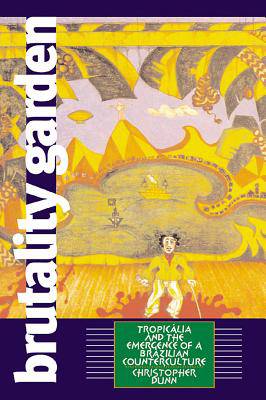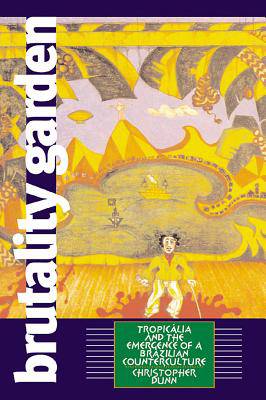
- Afhalen na 1 uur in een winkel met voorraad
- Gratis thuislevering in België vanaf € 30
- Ruim aanbod met 7 miljoen producten
- Afhalen na 1 uur in een winkel met voorraad
- Gratis thuislevering in België vanaf € 30
- Ruim aanbod met 7 miljoen producten
Brutality Garden
Tropicalia and the Emergence of a Brazilian Counterculture
Christopher DunnOmschrijving
In the late 1960s, Brazilian artists forged a watershed cultural movement known as Tropicália. Music inspired by that movement is today enjoying considerable attention at home and abroad. Few new listeners, however, make the connection between this music and the circumstances surrounding its creation, the most violent and repressive days of the military regime that governed Brazil from 1964 to 1985. With key manifestations in theater, cinema, visual arts, literature, and especially popular music, Tropicália dynamically articulated the conflicts and aspirations of a generation of young, urban Brazilians.
Focusing on a group of musicians from Bahia, an impoverished state in northeastern Brazil noted for its vibrant Afro-Brazilian culture, Christopher Dunn reveals how artists including Caetano Veloso, Gilberto Gil, Gal Costa, and Tom Zé created this movement together with the musical and poetic vanguards of São Paulo, Brazil's most modern and industrialized city. He shows how the tropicalists selectively appropriated and parodied cultural practices from Brazil and abroad in order to expose the fissure between their nation's idealized image as a peaceful tropical "garden" and the daily brutality visited upon its citizens.
Specificaties
Betrokkenen
- Auteur(s):
- Uitgeverij:
Inhoud
- Aantal bladzijden:
- 276
- Taal:
- Engels
Eigenschappen
- Productcode (EAN):
- 9780807849767
- Verschijningsdatum:
- 15/10/2001
- Uitvoering:
- Paperback
- Formaat:
- Trade paperback (VS)
- Afmetingen:
- 161 mm x 236 mm
- Gewicht:
- 408 g

Alleen bij Standaard Boekhandel
Beoordelingen
We publiceren alleen reviews die voldoen aan de voorwaarden voor reviews. Bekijk onze voorwaarden voor reviews.








